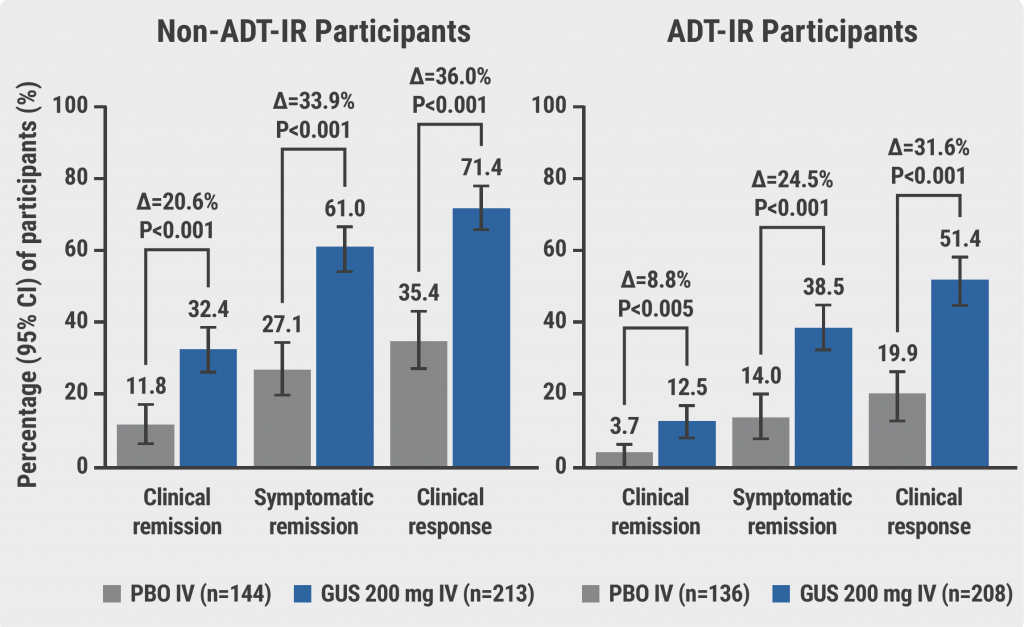https://doi.org/10.55788/d7497cbd
“We hypothesised that an accelerated treatment algorithm may shorten the duration of hospitalisation and possibly reduce morbidity and mortality in patients who are treated for large pancreatic WON compared with the classical step-up approach,” said Dr Gitte Olsen (Copenhagen University Hospital, Denmark) [1]. The investigators designed the single-centre, open-label, randomised ACCELERATE trial to test this hypothesis. The primary endpoint was a composite of death, major complications (i.e. organ failure, bleeding requiring intervention, perforation of visceral organ, or enterocutaneous fistula requiring intervention), and a hospital stay of ≥58 days.
The study enrolled 48 adult participants with symptomatic or infected pancreatic WON ≥15 cm, who were randomised 1:1 to the accelerated approach or conventional step-up treatment. All participants underwent trans-gastric drainage with a 20 mm lumen-apposing metal stent. In the accelerated group, an immediate endoscopic necrosectomy was performed in the same session and was continued as needed until the WON cavity was cleared of necrotic tissue. In the step-up arm, additional drainage or necrosectomy was only performed if the clinical condition had not improved after 72 hours.
The current interim analysis included 25 participants. Only 8.3% of the participants in the accelerated arm experienced a primary outcome event, compared with 61.5% in the control arm (P=0.011). The effect was mainly driven by a reduced length of stay ≥58 days (8.3% vs 53.8%; P=0.027) but also by a lower rate of major complications (0% vs 46.2%; P=0.015). Bleeding was the most frequent complication in the classical step-up treatment, followed by enterocutaneous fistulas. “After seeing these results, the study was terminated for safety reasons,” mentioned Dr Olsen. Finally, Dr Olsen noted that the mean length-of-stay in the hospital was significantly shorter in the accelerated arm than in the control (32.5 vs 68.5 days; P=0.039).
“Although the study sample size was small, it appears that an accelerated treatment algorithm reduces major complications and length of stay in the hospital in participants with large pancreatic WON,” concluded Dr Olsen.
- Olsen GA, et al. Accelerated vs step-up endoscopic treatment for large pancreatic walled-off necrosis: Interim analysis of a single-center randomized trial (ACCELERATE trial). LB16, UEG Week 2024, 12–15 October, Vienna, Austria.
Copyright ©2024 Medicom Medical Publishers
Posted on
Previous Article
« Guar gum alleviates IBS-related constipation in a randomised controlled trial Next Article
Diagnostic accuracy of fluorescence confocal laser microscopy after EUS-TA »
« Guar gum alleviates IBS-related constipation in a randomised controlled trial Next Article
Diagnostic accuracy of fluorescence confocal laser microscopy after EUS-TA »
Table of Contents: UEGW 2024
Featured articles
Cendakimab meets primary endpoints in eosinophilic oesophagitis
IBD: New Drugs, Established Agents, and Prevention
LOVE-CD: Vedolizumab yields better outcomes in early than in late CD
Moving towards the prevention of IBD
New insights into perianal fistulising CD pathogenesis may lead to new therapies
Risankizumab influences key pathogenic Th17 cells in CD
Meaningful corticosteroid-sparing effect of mirikizumab in UC
Extending ustekinumab dosing interval does not influence drug survival in IBD
CULTIVATE: Promising signal for etrasimod in Crohn’s disease
Tamuzimod delivers promising long-term data in UC
TL1A inhibitor tulisokibart shows potential in UC
Upadacitinib associated with normalisation of HRQoL in UC
Pancreas: Improved Diagnostics and Treatment Algorithms
Diagnostic accuracy of fluorescence confocal laser microscopy after EUS-TA
An accelerated treatment approach may save lives in pancreatic walled-off necrosis
Irritable Bowel Syndrome: from Guar Gum to Tradipitant
Guar gum alleviates IBS-related constipation in a randomised controlled trial
How useful is colonoscopy for constipation in young women?
Liver: Exploring New Therapeutics
Encouraging results for L-carnitine in metabolic dysfunction-associated steatotic liver disease
Other Late-breaking Studies from UEGW
TACITO: Does faecal microbiota transplantation improve survival in mRCC?
Is faecal microbiota transplantation a viable option to treat primary C. difficile infections?
Cendakimab meets primary endpoints in eosinophilic oesophagitis
© 2024 Medicom Medical Publishers. All rights reserved. Terms and Conditions | Privacy Policy
HEAD OFFICE
Laarderhoogtweg 25
1101 EB Amsterdam
The Netherlands
T: +31 85 4012 560
E: publishers@medicom-publishers.com


